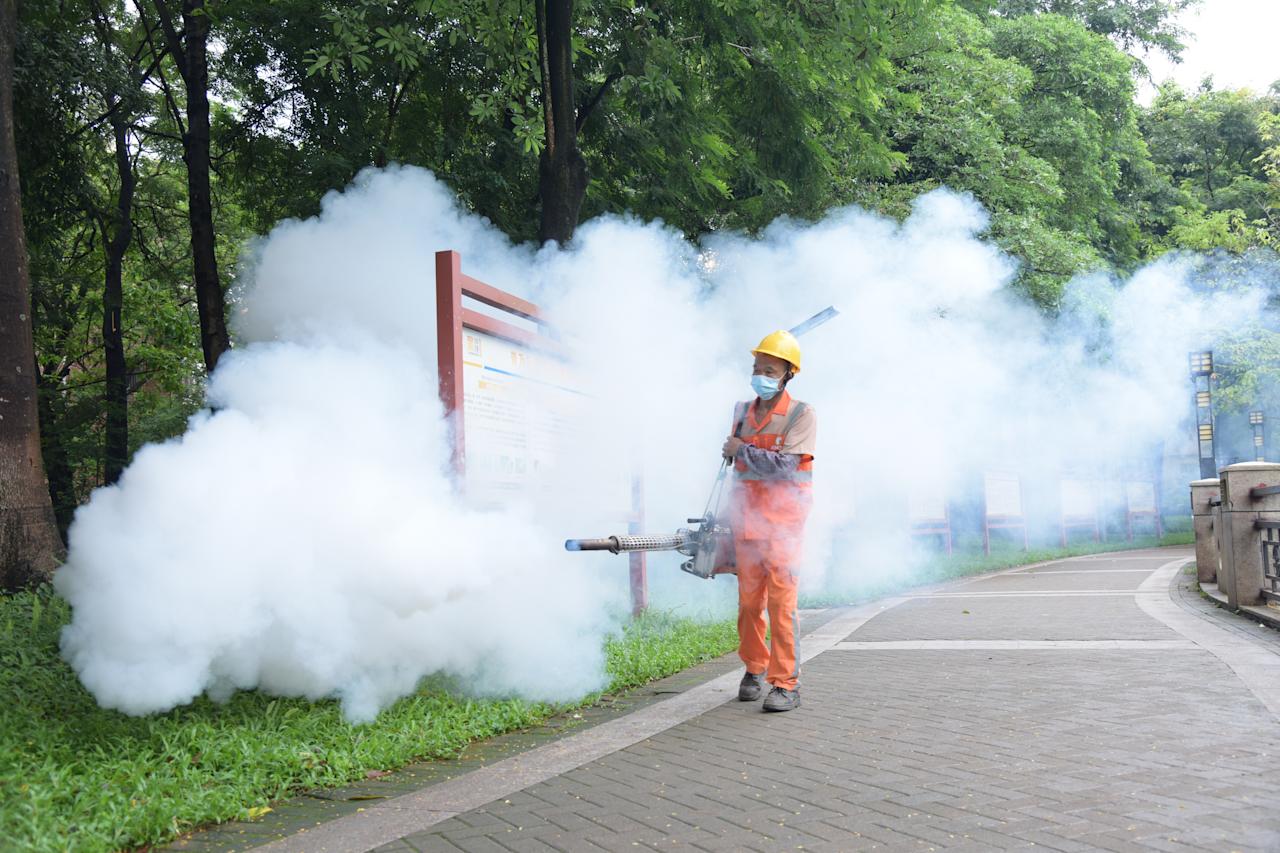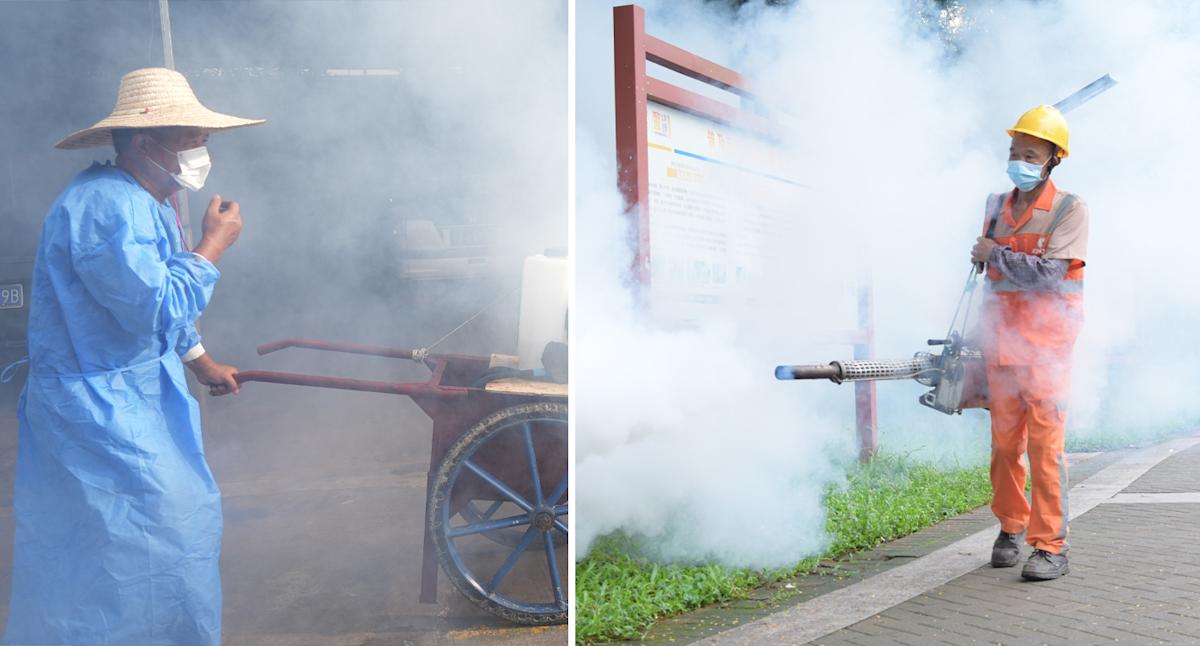Authorities in China are scrambling to contain an alarming outbreak of a mosquito-borne virus.
In scenes reminiscent of the country’s Covid lockdowns, masked workers have been seen spraying insecticides through streets to prevent the spread of Chikungunya, with more than 7,000 cases detected in the nation’s south since July.
The virus has now crossed the southern border and has been detected in Hong Kong. While the virus is not transmitted between humans, authorities are concerned at how quickly the outbreak has grown, with 3,000 cases in the past week.


A sanitation worker sprays insecticide to prevent the spread of Chikungunya. Source: Getty
Several patients have been hospitalised and are sleeping under mosquito nets, according to state media.
Authorities in Guangdong, where the majority of cases have been detected, have pledged to take “decisive and robust measures” to prevent further spread of the virus. Much of their strategy focuses on eliminating mosquito breeding sites.
Residents have been urged to remove stagnant water from their homes , as it can be an ideal breeding ground for mosquitoes. This includes water trapped in flower pots, coffee pot trays, and spare bottles. Those who fail to do so face fines of up to $2,100.
In the city of Foshan, identified as the outbreak’s epicentre, authorities released thousands of mosquito-eating fish into several bodies of water, according to Chinese media reports. Drones have also been flown throughout the city to detect standing water in hard-to-reach areas.
– With EuroNews
